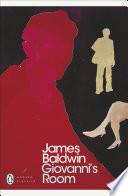"In Search of a Majority: An Address" (Feb 1960); reprinted in Baldwin, "Nobody Knows My Name: More Notes of a Native Son" https://en.wikipedia.org/wiki/Nobody_Knows_My_Name (1961)
Works

No Name in the Street
James Baldwin
Notes of a Native Son
James BaldwinSonny's Blues
James Baldwin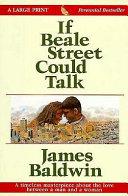
If Beale Street Could Talk
James Baldwin
Another Country
James Baldwin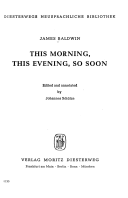
This Morning, This Evening, So Soon
James Baldwin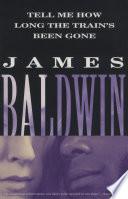
Tell Me How Long the Train's Been Gone
James BaldwinGo Tell It on the Mountain
James Baldwin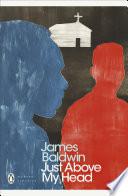
Just Above My Head
James Baldwin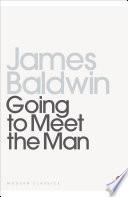
Going to Meet the Man
James BaldwinFamous James Baldwin Quotes

"The Black Boy Looks at the White Boy" in Esquire (May 1961)
"Me and My House" in Harper's (November 1955); republished in Notes of a Native Son (1955)
Source: The Fire Next Time
“Anyone who has ever struggled with poverty knows how extremely expensive it is to be poor.”
"Fifth Avenue, Uptown: a Letter from Harlem" in Esquire (July 1960); republished in Nobody Knows My Name: More Notes of a Native Son (1961)
James Baldwin Quotes about people
Source: nothing personal
As quoted in "James Baldwin Back Home" http://www.nytimes.com/books/98/03/29/specials/baldwin-home.html by Robert Coles in The New York Times (31 July 1977)
The Fire Next Time (1963)
"If Black English Isn't a Language, Then Tell Me, What Is?" http://www.nytimes.com/books/98/03/29/specials/baldwin-english.html in "The New York Times (29 July 1979)
James Baldwin Quotes about love
Source: Tell Me How Long the Train's Been Gone
"Letter from a Region of My Mind" in The New Yorker (17 November 1962); republished as "Down at the Cross: Letter from a Region in My Mind" in The Fire Next Time (1963)
"Negroes Are Anti-Semitic Because They're Anti-White" http://www.nytimes.com/books/98/03/29/specials/baldwin-antisem.html in The New York Times (9 April 1967)
Context: It is true that two wrongs don't make a right, as we love to point out to the people we have wronged. But one wrong doesn't make a right, either. People who have been wronged will attempt to right the wrong; they would not be people if they didn't. They can rarely afford to be scrupulous about the means they will use. They will use such means as come to hand. Neither, in the main, will they distinguish one oppressor from another, nor see through to the root principle of their oppression.
James Baldwin: Trending quotes
“Neither love nor terror makes one blind: indifference makes one blind.”
Source: If Beale Street Could Talk
James Baldwin Quotes
“Perhaps home is not a place but simply an irrevocable condition.”
Source: Giovanni's Room
“Not everything that is faced can be changed. But nothing can be changed until it is faced.”
"As Much Truth As One Can Bear" in The New York Times Book Review (14 January 1962); republished in The Cross of Redemption: Uncollected Writings (2011), edited by Randall Kenan<!-- , also quoted in Wisdom for the Soul : Five Millennia of Prescriptions for Spiritual Healing (2006) by Larry Chang, p. 114 -->
Context: Not everything that is faced can be changed. But nothing can be changed until it is faced. … Most of us are about as eager to change as we were to be born, and go through our changes in a similar state of shock.
Interview with Julius Lester, "James Baldwin: Reflections of a Maverick" http://www.nytimes.com/books/98/03/29/specials/baldwin-reflections.html in The New York Times (27 May 1984)
Context: Perhaps I did not succumb to ideology … because I have never seen myself as a spokesman. I am a witness. In the church in which I was raised you were supposed to bear witness to the truth. Now, later on, you wonder what in the world the truth is, but you do know what a lie is.
"Letter from a Region of My Mind" in The New Yorker (17 November 1962); republished as "Down at the Cross: Letter from a Region in My Mind" in The Fire Next Time (1963)
From Nothing Personal, a collaboration with the photographer Richard Avedon (1964). Baldwin's text for the volume can be found " here https://scholarworks.umass.edu/cgi/viewcontent.cgi?article=1042&context=cibs".
Context: One must say Yes to life, and embrace it wherever it is found - and it is found in terrible places. … For nothing is fixed, forever and forever, it is not fixed; the earth is always shifting, the light is always changing, the sea does not cease to grind down rock. Generations do not cease to be born, and we are responsible to them because we are the only witnesses they have. The sea rises, the light fails, lovers cling to each other and children cling to us. The moment we cease to hold each other, the moment we break faith with one another, the sea engulfs us and the light goes out.
Source: "Letter from a Region of My Mind" in The New Yorker (17 November 1962); republished as "Down at the Cross: Letter from a Region in My Mind" in The Fire Next Time (1963)
Context: If the concept of God has any validity or any use, it can only be to make us larger, freer, and more loving. If God cannot do this, then it is time we got rid of Him.
"The Creative Process" (1962) originally published in The National Culture Center's Creative America (1962) and later published in The Price of the Ticket (1985)
“I felt so aimless - like a tennis ball, bouncing, bouncing - I began to wonder where I'd land.”
Pt. 2, Ch. 4 - p.108
Giovanni's Room (1956)
“She is smiling and her eyes are kind but now the smile is purely social”
Pt. 1, Ch. 3 - p.62
Giovanni's Room (1956)
“I am beginning to feel like part of a travelling circus.”
Pt. 1, Ch. 3 - p.45
Giovanni's Room (1956)
Pt. 1, Ch. 2 - p.36
Giovanni's Room (1956)
Pt. 1, Ch. 2 - p.31
Giovanni's Room (1956)
“Nobody can stay in the garden of Eden,' Jacques said. And then: 'I wonder why.”
I have thought about Jacques' question since. Everyone, after all, goes the same dark road - and the road has a trick of being most dark, most treacherous, when it seems most bright - and it's true that nobody stays in the garden of Eden. Perhaps everybody has a garden of Eden, I don't know; but they have scarcely seen their garden before they see the flaming sword. Then, perhaps, life only offers the choice of remembering the garden or forgetting it. Either, or.
Pt. 1, Ch. 2 - p.22
Giovanni's Room (1956)
Pt. 1, Ch. 1 - p.5
Giovanni's Room (1956)
No Name in the Street (1972)
“The civilized have created the wretched, quite coldly and deliberately”
From chapter one of The Devil Finds Work (orig. pub. 1976), reprinted in The Price of the Ticket: Collected Nonfiction, 1948-1985
Context: The civilized have created the wretched, quite coldly and deliberately, and do not intend to change the status quo; are responsible for their slaughter and enslavement; rain down bombs on defenseless children whenever and wherever they decide that their "vital interests" are menaced, and think nothing of torturing a man to death: these people are not to be taken seriously when they speak of the "sanctity" of human life, or the "conscience" of the civilized world.
"The Black Boy Looks at the White Boy" in Esquire (May 1961)
Context: The roles that we construct are constructed because we feel that they will help us to survive and also, of course, because they fulfill something in our personalities; and one does not, therefore, cease playing a role simply because one has begun to understand it. All roles are dangerous. The world tends to trap you in the role you play and it is always extremely hard to maintain a watchful, mocking distance between oneself as one appears to be and oneself as one actually is.
“Art has to be a kind of confession.”
"An interview with James Baldwin" (1961); an interview with Studs Terkel published in Conversations With James Baldwin (1989)
Context: Art has to be a kind of confession. I don't mean a true confession in the sense of that dreary magazine. The effort it seems to me, is: if you can examine and face your life, you can discover the terms with which you are connected to other lives, and they can discover them, too — the terms with which they are connected to other people.
No Name in the Street (1972)
Context: The prison is overcrowded, the calendars full, the judges busy, the lawyers ambitious, and the cops zealous. What does it matter if someone gets trapped here for a year or two, gets ruined here, goes mad here, commits murder or suicide here? It's too bad, but that's the way the cookie crumbles sometimes. I do not claim that everyone in prison here is innocent, but I do claim that the law, as it operates, is guilty, and that the prisoners, therefore, are all unjustly imprisoned. Is it conceivable, after all, that any middle-class white boy -- or, indeed, almost any white boy -- would have been arrested on so grave a charge as murder, with such flimsy substantiation, and forced to spend, as of this writing, three years in prison? What force, precisely, is operating when a prisoner is advised, requested, ordered, intimidated, or forced, to confess to a crime he has not committed, and promised a lighter sentence for so perjuring and debasing himself? Does the law exist for the purpose of furthering the ambitions of those who have sworn to uphold the law, or is it seriously to be considered as a moral, unifying force, the health and strength of a nation?
From Nothing Personal, a collaboration with the photographer Richard Avedon (1964). Baldwin's text for the volume can be found " here https://scholarworks.umass.edu/cgi/viewcontent.cgi?article=1042&context=cibs".
Context: One must say Yes to life, and embrace it wherever it is found - and it is found in terrible places. … For nothing is fixed, forever and forever, it is not fixed; the earth is always shifting, the light is always changing, the sea does not cease to grind down rock. Generations do not cease to be born, and we are responsible to them because we are the only witnesses they have. The sea rises, the light fails, lovers cling to each other and children cling to us. The moment we cease to hold each other, the moment we break faith with one another, the sea engulfs us and the light goes out.
“Art would not be important if life were not important, and life is important.”
"An interview with James Baldwin" (1961)
Context: You read something which you thought only happened to you, and you discover that it happened 100 years ago to Dostoyevsky. This is a very great liberation for the suffering, struggling person, who always thinks that he is alone. This is why art is important. Art would not be important if life were not important, and life is important.
“I began plotting novels at about the time I learned to read.”
Autobiographical Notes (1952)
Context: I began plotting novels at about the time I learned to read. The story of my childhood is the usual bleak fantasy, and we can dismiss it with the restrained observation that I certainly would not consider living it again.
Interview with Julius Lester, "James Baldwin: Reflections of a Maverick" http://www.nytimes.com/books/98/03/29/specials/baldwin-reflections.html in The New York Times (27 May 1984)
"The Precarious Vogue of Ingmar Bergman" in Esquire (April 1960); republished as "The Northern Protestant" in Nobody Knows My Name: More Notes of a Native Son (1961) and in The Price of the Ticket (1985)
Autobiographical Notes (1952)
Context: I don't like people who like me because I'm a Negro; neither do I like people who find in the same accident grounds for contempt. I love America more than any other country in the world, and, exactly for this reason, I insist on the right to criticize her perpetually. I think all theories are suspect, that the finest principles may have to be modified, or may even be pulverized by the demands of life, and that one must find, therefore, one's own moral center and move through the world hoping that this center will guide one aright. I consider that I have many responsibilities, but none greater than this: to last, as Hemingway says, and get my work done.
I want to be an honest man and a good writer.
Pt. 1, Ch. 1 - p.4-5 [Page numbers per the 2007 Penguin Books paperback edition.]
Source: Giovanni's Room (1956)
No Name in the Street (1972)
Context: Well, if one really wishes to know how justice is administered in a country, one does not question the policemen, the lawyers, the judges, or the protected members of the middle class. One goes to the unprotected — those, precisely, who need the law's protection most! — and listens to their testimony. Ask any Mexican, any Puerto Rican, any black man, any poor person — ask the wretched how they fare in the halls of justice, and then you will know, not whether or not the country is just, but whether or not it has any love for justice, or any concept of it. It is certain, in any case, that ignorance, allied with power, is the most ferocious enemy justice can have.
Source: Collected Essays: Notes of a Native Son / Nobody Knows My Name / The Fire Next Time / No Name in the Street / The Devil Finds Work / Other

